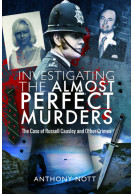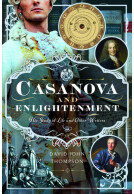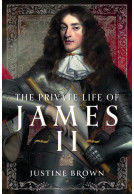Rebellion Against Henry III (Hardback)
The Disinherited Montfortians, 1265–1274
Imprint: Pen & Sword History
Pages: 224
Illustrations: 25 black and white illustrations
ISBN: 9781526763204
Published: 18th May 2020
(click here for international delivery rates)
Order within the next 5 hours, 22 minutes to get your order processed the next working day!
Need a currency converter? Check XE.com for live rates
| Other formats available - Buy the Hardback and get the eBook for £1.99! | Price |
|---|---|
| Rebellion Against Henry III ePub (930.8 KB) Add to Basket | £6.99 |
The 'Montfortian' civil wars in England lasted from 1259-67, though the death of Simon de Montfort and so many of his followers at the battle of Evesham in 1265 ought to have ended the conflict. In the aftermath of the battle, Henry III's decision to disinherit all the surviving Montfortians served to prolong the war for another two years. Hundreds of landless men took up arms again to defend their land and property: the redistribution of estates in the wake of Evesham occurred on a massive scale, as lands were either granted away by the king or simply taken by his supporters.
The Disinherited, as they were known, defied the might of the Crown longer than anyone could have reasonably expected. They were scattered, outnumbered and out-resourced, with no real unifying figure after the death of Earl Simon, and suffered a number of heavy defeats. Despite all their problems and setbacks, they succeeded in forcing the king into a compromise. The Dictum of Kenilworth, published in 1266, acknowledged that Henry could not hope to defeat the Disinherited via military force alone.
The purely military aspects of the revolt, including effective use of guerilla-type warfare and major actions such as the battle of Chesterfield, the siege of Kenilworth and the capture of London, will all be featured. Charismatic rebel leaders such as Robert de Ferrers, the 'wild and flighty' Earl of Derby, Sir John de Eyvill, 'the bold D'Eyvill' and others such as Sir Adam de Gurdon, David of Uffington and Baldwin Wake all receive a proper appraisal.
A fascinating read centring on the aftermath of the Battle of Evesham, in which Simon de Montfort was killed with many of his followers.
Tastes Through Time website
This is a period of our history that is largely glossed over, usually being confined to ‘Simon de Montfort founded our modern Parliament’. However, the fight continued long after his death, with the major redistribution of lands confiscated from rebel barons by the king and great hardships suffered by some of those Disinherited.
Well written and readable personally.
The bibliography and endnotes are some of the most voluminous I have ever seen and the appendices contain a transcript of the Dictum of Kenilworth, which was the instrument in restoring lands, as well a convincing argument for the several identities of Robin Hood.
Altogether a well researched and comprehensive narrative of a very important turbulent and overlooked time in the history of this land, its politics and hierarchy.
In "Rebellion Against Henry III" David Pilling has written and informative and fascinating book on the aftermath of Simon de Montfort's rebellion and the Battle of Evesham in 1265. Henry III had been on the throne for nearly 50 years by that time (he was the longest reigning monarch in British history until Queen Victoria), but his faults and shortcomings as a ruler resulted in the grivances of his subjects and nobles going laregely unresolved.
NetGalley, Joanna Arman
Pilling in this work charts the lives and careers of the men who sided with Montfort, risking all to bring about reform or to simply achieve their ends. The two "case studies" appended to the end also provided some interesting food for thought (could Robin Hood have been an outlawed Montfortian?). It also contains the full text of the Dictum of Kenilworth, which some might consider to be Magna Carta Mark II.
This is the perfect accompaniment to any biography of Henry III or Simon de Montfort (and there have been a couple of new ones recently). Although it could be read alone, it would be worth reading up on both of those figures first just to familiarize yourself with the major events of this period.
It is a page-turner and a much needed one for this inexplicably neglected part of medieval history.
Henry, Simon and the two Eleanors
Read the full review here
This book about king Henry III and the disinherited was fascinating. Well researched and easy to read I recommend for all history readers.
NetGalley, Shelly Myers
This book covers a period of history little written about. It follows the ups and downs of those who had supported Simon de Montfort during the Second Barons’ War, following Simon’s defeat and death at the Battle of Evesham. This book looks at the aftermath, at what happened to those who survived the war and the dreadful, final Battle of Evesham, but found themselves on the losing side. It’s an interesting look at the noblemen, barons and knights, known as the Disinherited.
UK Historian
I have to admit this is a very gripping read indeed, it was a case of reading for a bit and not being able to wait until I could carry on reading. The ups and downs of battle and intrigue was good and has really made me want to read up more on this particular period. This book covers all the major players at the time such Earl of Derby, Robert De Ferrers and John Deyville and much more. The book is broken down into quite a few chapters with each chapter exploring particular events and people, along with events being examined from both sides of the argument. The book also has an excellent bibliography, which I look forward to using in the future. I would certainly recommend this book to others as it’s a gripping read, one to savour. A 5 star rating from me.
Read the full review here
Rebellion Against Henry III: The Disinherited Montfortians 1265-1274 by David Pilling was a thoroughly absorbing book. A very interesting read that highlights a 10-year period that is often overlooked after the momentous events of the previous decade. I have no hesitation in recommending it.
HISTORY… THE INTERESTING BITS!
Read the full review here
Fascinating to learn how the rebels formed their own networks across the country. Mr Pilling also suggests how the 'ordinary' people are beginning to find their voices, particularly in the section of the book on Sir Adam Gurdon and his West Country following. Also liked the way the book includes accounts from Chronicles and lyrics from popular songs that refer to Simon de Montfort. Overall, an excellent work.
13th Century History
Read the full review here
Rating: 5 out of 5 stars
NetGalley, Rebecca Hill
If you are familiar in any way with medieval history, then Simon de Montfort is a name that you will have heard, at least once. In the Rebellion Against Henry III, the life of Simon de Montfort, and his role in the rebellion against the king becomes much more clear.
With the many nobles who raised arms against the king, Simon was at the forefront. The rebellion though is a bit misleading. It was more than one, it was long, and it was bloody. There was not a simple ruling that put it down or nobles who simply had their feelings hurt and were placated by lands, money or promises. These were nobility out for blood, and it was blood they got. For the Marcher lords wanted much more than empty promises and royal favors...
David Pilling goes through the entire rebellion - from the threads that began to pull to the bloody end. I was able to learn so much more, and gleaned so much information from this book! For those who love medieval history, military history, or royal history - then this is a book that you are going to want to pick up. It is laid out in a way that no matter the level of learning you have in medieval studies, it is understandable, easy to follow, and informative.
I've read historical fiction about Simon de Monfort so was greatly interested to read this.
NetGalley, Amy McElroy
I was surprised to learn how much conflict there was at this time and it seems to have spread all over England. Pilling does a great job of explaining who was who and the part they played in the rebellions and their possible reasons for continuing to rebel after being pardoned and released from prison.
Before reading this I was unaware so many nobles were involved and leading seperate rebellions against the crown. I found the writing style to be easy to follow especially for a topic I was not previously knowledgeable about. The text is fully referenced for those who wish to check sources.
I appreciated that Pilling continues to tell the fate of some of those who left England during the rebellions and how their actions may have been perceived by Henry III and Edward.
Overall, a very interesting book into the rebellions against Henry III and his son Edward.
About David Pilling
David Pilling is a self-employed author and historian based in West Wales, where he was raised on a smallholding. As a child he acquired a love for the Welsh countryside and Welsh history, especially the medieval era. His particular interests lie in the Edwardian wars of the late 13th century. He is the author of Rebellion Against Henry III and Edward I and Wales, 1254-1307, this is his third book for Pen and Sword.
















